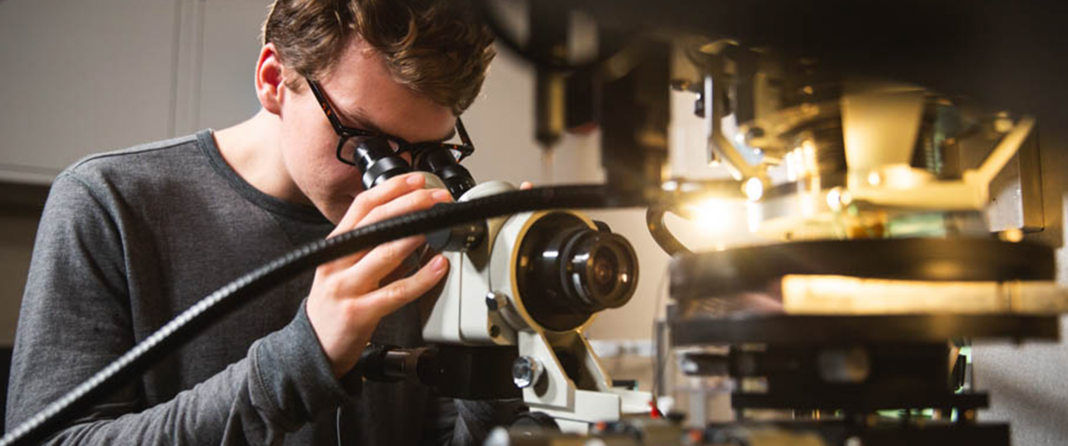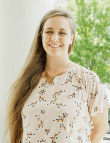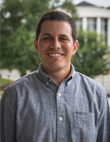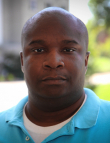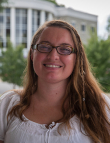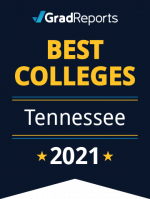Overview
"...see how science can be integrated with your own personal faith."
At Trevecca, we aim to provide our biology students with a broad understanding of the discipline, from the molecular basis of life to the integration of life processes regulating the function of whole organisms. By emphasizing critical thinking, scientific communication and laboratory skills, we seek to prepare students to succeed in scientific careers and graduate programs. Whether you are looking to enter the medical field or want to learn more about how science impacts the modern world, Trevecca's Bachelor of Science in Biology program will get you where you want to be.
Earning your degree in an atmosphere where academic rigor meets strong Christian community, means you’ll be able to take full advantage of our newly renovated facilities and state-of-the-art equipment without sacrificing your values or beliefs.
Our professors all hold the most advanced degrees in their fields, and come from a wide range backgrounds from diverse culture, academic and professional. This diversity allows students to learn, grow and challenge their perspectives.
Studying biology at Trevecca means getting hands on in your major, from undergraduate research, summer internships, medical missions trips, community education and outreach events, Trevecca’s biology faculty are always looking for new ways to enhance each student’s experience.
What our students say
"Being involved in cancer research at Trevecca has challenged me to think critically and to look at problems from many different angles. Because I want to work in the medical field and "fix people's problems," I am thankful for the opportunity to do research. I believe that my Trevecca training will help me to be a much more effective and thoughtful healthcare provider in the future."
"As a sophomore in high school, I knew I loved chemistry. When I saw the passion and spark in Professor Alisha Russell, I realized how much I loved biology as well. I was blessed with the opportunity to join a new cancer research group with Dr. Russell last year. My experience with this group helped me be accepted into a highly competitive internship for chemistry at the University of Kansas."
News
Core Classes
General Biology I
BIO 1510
An introduction to fundamental concepts in the biological sciences including the organization of living matter, cellular structure and function, food production by photosynthesis, energy harvest, mechanisms of cellular reproduction, genetics, and evolution. Discussions of current scientific issues will also be included. Lecture and lab. Fee charged.
Course Hours: 4
General Biology II
BIO 1520
A study of diverse structures and functions observed in a variety of prokaryotic and eukaryotic organisms, with emphasis placed on plants and vertebrates. The study of the Kingdom Plantae will include investigation of plant life cycles and reproductive strategies. Topics including respiration, digestion, and reproduction will be introduced in the study of vertebrate animals. An introduction to ecology and the impact of humans on a variety of organisms will also be included. Lecture and lab. Fee charged.
Course Hours: 4
Microbiology
BIO 2820
A survey of microscopic organisms with emphasis on bacteria and fungi. Classification, morphology, cultivation, and identification will be studied in both lecture and lab. The role of these organisms in the ecosystem, industry, and disease will also be discussed. Lecture and lab. Fee charged.
Course Hours: 4
Ecology
BIO 3040
A course that promotes the understanding of ecosystems as a whole and the influence of humans as top predator to either balance and preserve or disrupt and destroy these systems. The study will include interactions of ecosystem constituents, both community and population, and their contribution or detriment to the system. Emphasis will be placed on the use of biodegradable materials in all aspects of our life cycle and analysis of energy and resource flow that is more sympathetic with natural systems. Aquatic, terrestrial, and urban habitats will be studied in laboratory and field trips always with a focus on some measurable significant improvement within each semester. Lecture and lab. Fee charged.
Course Hours: 4
Junior Seminar in Biology
BIO 3335
Requires students to participate in professional development activities designed to prepare them to apply for summer research/externship positions, graduate school, medical programs, and/or jobs in scientific or technical fields. In addition, students will explore the integration of faith with their desired profession.
Course Hours: 1
Genetics
BIO 3720
Emphasizes Mendelian (classical) genetics. Additional topics include chromosome mapping in eukaryotes, chromosomal mutations, extranuclear inheritance, quantitative genetics, and population genetics. Genetic principles are applied to selected human traits as well as those of other organisms. Several genetic disorders of humans are considered. Lecture and lab. Fee charged.
Course Hours: 4
Molecular Biology
BIO 3730
Emphasizes Molecular genetics. Topics include DNA structure, replication, and variation; expression and regulation of genetic information; recombinant DNA technology; and applications and ethics of biotechnology. Selected techniques in molecular genetics are included. Lecture and lab. Fee charged.
Course Hours: 4
Senior Seminar in Biology
CHE 4335
Culminating seminar for chemistry majors and an opportunity to engage in the preparation of a literature review, present scientific data in the form of oral and poster presentations, and demonstrate content knowledge by means of an external assessment. In addition, students will draw upon their experience within the program of study to articulate the relationship between faith and science.
Course Hours: 1
Required Support Courses
General Chemistry I
CHE 1040
The first course in a one-year sequence for students planning further work in chemistry. Topics discussed include atomic structure, periodic relationships, bonding, molecular structure, chemical reactions, thermochemistry, solids, liquids, and gases. Lecture and lab. Fee charged.
General Chemistry II
CHE 1050
The second course in a one-year sequence for students planning further work in chemistry. Topics discussed include solutions, kinetics, equilibrium, acids and bases, thermodynamics, and electrochemistry. Lecture and lab. Fee charged.
Organic Chemistry I
CHE 2010
The first course in a one-year sequence in organic chemistry. Topics discussed include organic structures, functional groups, stereochemistry, reactions, oxidation and reduction, spectroscopy, chromatography, and the chemistry of alkanes, alkenes, alkynes, alkyl halides, alcohols, and ethers. Lecture and lab. Fee charged.
Organic Chemistry II
CHE 2020
The second course in a one-year sequence in organic chemistry. Topics discussed include the chemistry of dienes, carbonyl-containing compounds, aromatics, and amines. A brief introduction to biochemistry is also covered. Lecture and lab. Fee charged.
Calculus I
MAT 1510
A study of Cartesian and polar coordinates, parametric equations, vectors and vector-valued functions in 2 and 3 dimensions, limits, differentiation of functions with applications, integration of functions with applications, Taylor polynomials, and series. It is strongly recommended that students take PHY 2110 and PHY 2120 concurrently with MAT 1510 and MAT 1520, respectively.
Statistical Analysis for the Sciences
MAT 1350
An introductory statistics course with an emphasis on exploratory and inferential techniques for analyzing and modeling data. Topics include descriptive statistics, regression, probability distributions, confidence intervals, hypothesis testing and experiment design. Statistical software is implemented throughout the course.
Introduction to Computer Technology for the Sciences
SCI 2150
A hands-on introduction to computer-based measurements, automation, and graphical programming for the sciences. The LabVIEW graphical programming environment will be introduced and used to write software applications that collect, display and analyze experimental data. Automated experiments in the areas of biology, chemistry and physics will be designed and implemented. Topics such as sensors, signals, data acquisition, error analysis, and noise will be explored. The use of standard office spreadsheet, word-processing, and presentation software for scientific data analysis and reporting will also be emphasized. Lecture and Lab. Fee charged.
General Physics I
PHY 2110
For students with an interest in science, engineering, and medicine. Includes mechanics, heat, sound, electricity and magnetism, light, and modern physics. Lecture and lab. Fee charged.
Overview
"...see how science can be integrated with your own personal faith."
At Trevecca, we aim to provide our biology students with a broad understanding of the discipline, from the molecular basis of life to the integration of life processes regulating the function of whole organisms. By emphasizing critical thinking, scientific communication and laboratory skills, we seek to prepare students to succeed in scientific careers and graduate programs. Whether you are looking to enter the medical field or want to learn more about how science impacts the modern world, Trevecca's Bachelor of Science in Biology program will get you where you want to be.
Earning your degree in an atmosphere where academic rigor meets strong Christian community, means you’ll be able to take full advantage of our newly renovated facilities and state-of-the-art equipment without sacrificing your values or beliefs.
Our professors all hold the most advanced degrees in their fields, and come from a wide range backgrounds from diverse culture, academic and professional. This diversity allows students to learn, grow and challenge their perspectives.
Studying biology at Trevecca means getting hands on in your major, from undergraduate research, summer internships, medical missions trips, community education and outreach events, Trevecca’s biology faculty are always looking for new ways to enhance each student’s experience.
What our students say
"Being involved in cancer research at Trevecca has challenged me to think critically and to look at problems from many different angles. Because I want to work in the medical field and "fix people's problems," I am thankful for the opportunity to do research. I believe that my Trevecca training will help me to be a much more effective and thoughtful healthcare provider in the future."
"As a sophomore in high school, I knew I loved chemistry. When I saw the passion and spark in Professor Alisha Russell, I realized how much I loved biology as well. I was blessed with the opportunity to join a new cancer research group with Dr. Russell last year. My experience with this group helped me be accepted into a highly competitive internship for chemistry at the University of Kansas."
